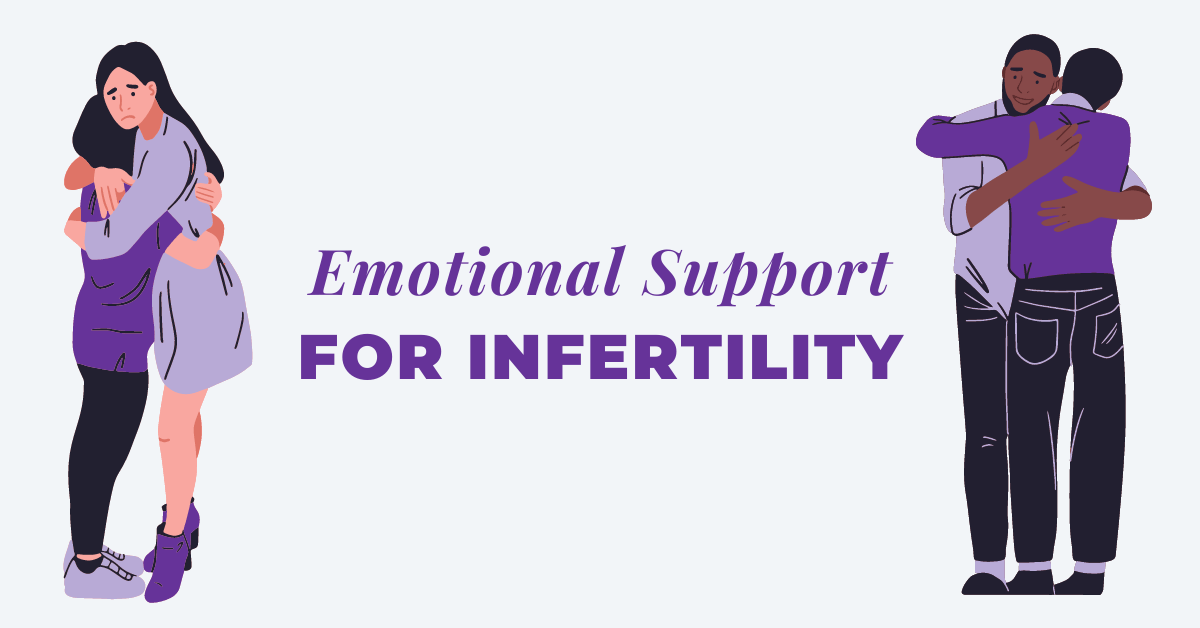Infertility is a difficult situation for couples or individuals that go through it. Besides being a shock, people aren’t aware of how emotionally challenging and overwhelming infertility can be. Many challenges come with it from both the inside and out, including social expectations, finances, pressure, judgment, among others. You will probably face social pressure or judgment from your friends, family or even strangers around having a baby. You will receive tips and advice from misinformed people on infertility – tips that are not helpful or even true.
Infertility impacts your life mentally, psychologically, physically and spiritually, affecting several areas of your life, from your self-esteem, mood, plans and dreams for the future to your relationships with friends and family and social life. Then, come feelings of guilt, emptiness or failure that interfere with both your quality of life and the quality of your relationship.
Your attention and focus are so around the physical aspects of infertility, causes, and treatments that you ignore and neglect the emotional elements. It is vital that you direct your efforts and energy to infertility treatment, but don’t forget to take care of your mind. If you are not mentally and emotionally aware and well, the physical treatment will be even more painful. Fertility treatment can be emotionally aggressive so getting support from people you can relate to what you’re going through is very important.
Emotional Impact Of Infertility

The emotions associated with infertility come from both inside and out. The emotions from within can be stress, distress, depression, insecurity and anxiety.
- Anger or disappointment are also prevalent feelings. It is normal to have questions like “Why me?” or “What did I do to deserve this?” arise in your mind. Moreover, sexuality can begin to have another sense for you. If once it was an act of love and romance between the couple, now it is something technical, controlled by you and your doctor.
- In addition, expect feelings like stress, sadness, depression, and frustration. Some relationships might be affected, either with your partner, family or friends. The solution to alleviate these feelings might be exercising regularly, including aerobic, yoga, pilates, and meditation. See our meditation guide here: https://monicabivas.kartra.com/page/freemeditations
If you are about to start this journey or are already walking this difficult path, I am here to offer you some guidance. I’d undergone IVF five times before conceiving, and I felt very alone during that time. I’m here to help because I don’t want others to walk that path alone as I did. Try sharing your experience with people who understand what you are going through – you might find it soothing.
Unfortunately, it is not only the emotions that come from within that you have to fight. Social expectations and strain on your relationship play a role in many negative emotions.
- Sometimes, coping with questions like “Are you pregnant yet?” is stressful and seems overwhelming, no matter how harmless the questions are. Remember, you decide how much of your personal life you are comfortable sharing.
- When couples face an infertility situation (no matter who is infertile), the relationship can be strained. Some couples get closer together, but for other couples, it leads to the narrow perception that if they can’t have a baby, then everything is wrong. Furthermore, scheduling sex for conceiving may lead to problems with sexual performance and a decrease in overall sexual satisfaction.
- Fertility treatments are usually very expensive. The therapy includes numerous medications, appointments, daily tests, and procedures. So when couples try to pay for these treatments and still cannot conceive, it can emphasize the sense of failure experienced.
To help you manage the process, handle stress and bring focus and clarity during your IVF journey, use an IVF Planner. Find it here: https://monicabivas.com/theivfplanner/
Getting Emotional Support

Each case is particular and unique. Everyone experiences infertility differently. You may feel all the emotions mentioned above, or you may be coping very well. Regardless, seeking outside support can help you cope with emotional distress – you can seek help from your partner, friends, and family or from support groups that know exactly what you are feeling.
Support from your partner
If infertility is experienced as a couple, your partner can be a wonderful source of comfort, especially if you understand each other. Nevertheless, this situation affects both of you. This means that you may feel pressured, angry and sad just like your partner, so it can be challenging to sort out your emotions together.
Support from your family and friends
Having support from your family and friends is incredible. They know you well and understand how they should help you. Nevertheless, be careful in your choices – sometimes, some of your negative feelings may come from those closest to you.
Support from counseling
For some people, getting extra support from a counselor is very helpful. They will help you think about the treatment, how you should face it, and how it might affect you and those close to you.
Support from supporting groups
Support groups may also be helpful. Sometimes, it is easier to get support from someone you don’t know than from people close to you. Supporting groups or professional help allows you to express feelings and thoughts you cannot share elsewhere.
Furthermore, meeting people who have directly experienced your situation encourages you to feel comfortable talking and asking questions without judgment – thus, you feel understood and supported. Your family and friends might not be able to offer you what these support groups can.
Emotional Support For Infertility In Men

This article is dedicated to emotional support for infertility, no matter who is infertile. Men also suffer a lot from infertility, and all the emotions that are common in women can also arise in men. So, pay attention to your emotional health. Most of the support groups welcome both individuals and couples, which is good for both of you because you have the opportunity to share your emotions and feelings together.
You have a lot of emotional support options available. Don’t neglect your mind. You are not alone, and you deserve to meet people that have experienced the same as you. Get support from your partner, friends, and family. Get support for groups or professional help. But, get support!

